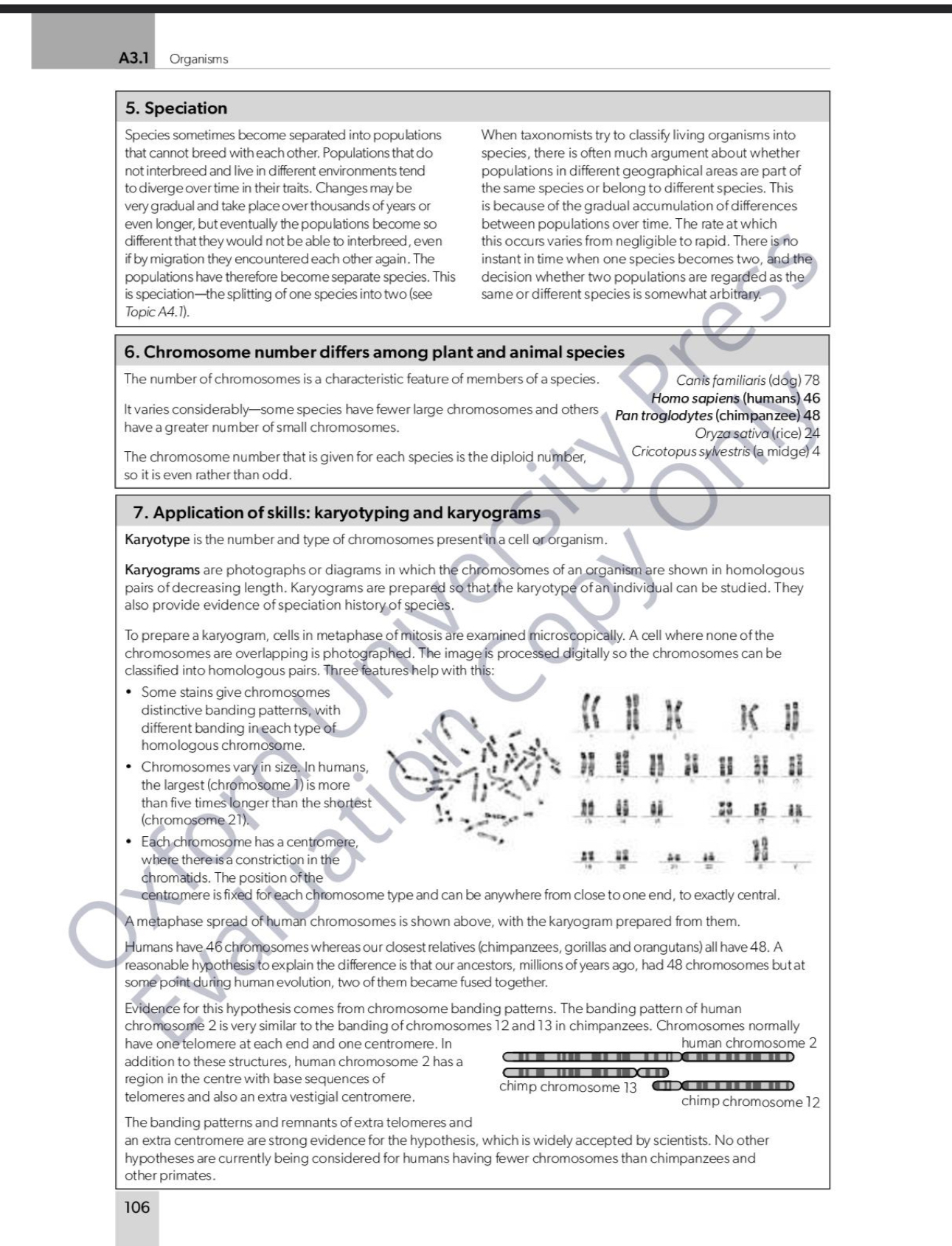What are the differences in chromosome numbers between plant and animal species, and how do karyotypes and karyograms help in studying these differences?

Understand the Problem
The question seems to focus on understanding speciation and the differences in chromosome numbers between plant and animal species, as well as methodologies like karyotyping. It seeks clarification on complex biological concepts related to genetics and evolution.
Answer
Karyotypes and karyograms help visualize chromosome differences, aiding in the study of genetic and evolutionary variations.
Karyotypes and karyograms help study differences in chromosome numbers by providing detailed visual and descriptive representations of chromosomes, allowing identification of genetic abnormalities and understanding of evolutionary biology.
Answer for screen readers
Karyotypes and karyograms help study differences in chromosome numbers by providing detailed visual and descriptive representations of chromosomes, allowing identification of genetic abnormalities and understanding of evolutionary biology.
More Information
Karyotypes provide a general overview of the chromosome number and structure, important for understanding genetic functions and evolutionary connections. Both animal and plant species show significant variation in chromosome numbers, which can inform studies of genetic diversity and speciation.
Tips
A common mistake is confusing karyotypes (which are descriptive) and karyograms (which are visual representations).
Sources
- 2.5: Karyotypes Describe Chromosome Number and Structure - bio.libretexts.org
- Chromosome numbers and karyotypes within the Ranunculus - sciencedirect.com
- Karyotype - Wikipedia - en.wikipedia.org
AI-generated content may contain errors. Please verify critical information